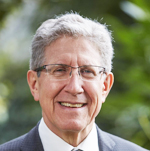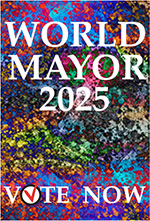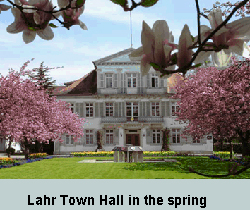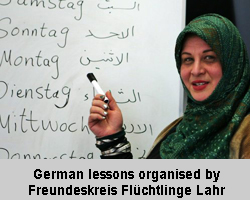
 FRONT PAGE About World Mayor City Mayors Foundation worldmayor@gmail.com Tel: +44 20 8439 7978    WORLD MAYOR 2018 • VOTE NOW • Shortlist 2018 • Longlist 2018 • Raison d'être • World Mayor history • World Mayor Prize • Code of Ethics • Criteria • Meet the Press WORLD MAYOR 2016 • Results 2016 • Project 2016 • Shortlist 2016 • Longlist 2016 • Code of Ethics • World Mayor Prize • World Mayor History • Raison d'être INTERVIEWS WITH • Mayor of Athens • Mayor of Lahr • Mayor of Mechelen TESTIMONIALS • Mayor of Aleppo • Mayor of Amstelveen • Mayor of Athens • Mayor of Cologne • Mayor of Gdansk • Mayor of Grande-Synthe • Mayor of Hettstedt • Mayor of Lahr • Mayor of Lampedusa • Mayor of Lesbos • Mayor of Mechelen • Mayor of Philadelphia • Mayor of Schwäbisch Gmünd ESSAYS BY • Mayor of Aleppo • Mayor of Amstelveen • Mayor of Athens • Mayor of Gdansk • Mayor of Lahr • Mayor of Mechelen • Mayor of Schwäbisch Gmünd PROFILES OF • Mayor of Amstelveen • Mayor of Athens • Mayor of Cologne • Mayor of Gdansk • Mayor of Grande-Synthe • Mayor of Lahr • Mayor of Lampedusa • Mayor of Lesbos • Mayor of Mechelen • Mayor of Schwäbisch Gmünd WORLD MAYOR 2014 WORLD MAYOR 2012 WORLD MAYOR 2010 WORLD MAYOR 2008 WORLD MAYOR 2006 WORLD MAYOR 2005 WORLD MAYOR 2004 |
WORLD MAYOR 2016 The City Mayors Foundation has invited the mayors shortlisted for the 2016 World Mayor Prize to contribute their thoughts on the challenges faced by and opportunities offered to their communities following the arrival of hundreds, if not thousands, of refugees and migrants from war zones and desaster-torn regions of the world. Below in a thought-provoking essay, Wolfgang G Müller, Mayor of Lahr, Germany, challenges those who believe that protecting economic prosperity was more important than showing solidarity with those in need. He also explains how his small city in the south-west corner of Germany has succeeded in integrating thousands of immigrants from the former Soviet Union and is offering a welcome to people fleeing from today's war zones. English version ||| Deutsche Fassung  Essay by Wolfgang G Müller Essay by Wolfgang G MüllerMayor of Lahr, Germany When the 'World Mayor 2016' is being sought, the search takes place throughout the world. A European mayor is not always the first choice for this honor. When, for instance, the selection aims to draw attention to the dramatic situation involving countless refugees and to make the world aware of their hardship and misery, their hunger, unimaginable violence and death. We can hardly imagine the challenges confronting the mayor's offices in municipalities across the Middle East, such as those in Syria. When we, as the European mayors selected among the finalists, rise to the demands set out for the “World Mayor 2016”, we strive to do so with a great degree of respect for what our colleagues in these areas of crisis have achieved. I presume to say this in the name of all my fellow mayors, as we may never compare the tasks before us to those facing our colleagues in the respective crisis areas across the globe. Yet mayors in Europe are also earning merit for the ways that they are addressing new global challenges. Within our borders as well, mayors have a special responsibility in terms of the most humanly of tasks that one can imagine: Helping those whose lives are in danger! As mayors of cities and towns in the wealthier parts of the world, both we and our citizens are confronted today with specific questions: • Is protecting economic prosperity more important than showing solidarity with those in need? • Are we taking the fears held by our inhabitants seriously? Or might we be reinforcing them through our behavior? • Are we yielding to the voices that are most prevalent among our residents? Or are we contributing to the exclusion of minority voices? • How do we make use of practical decisions to draw the line between maintaining the prosperity of our towns and cities and taking responsibility for those in need? • In what areas must we clearly speak out against hate and defensive parties, without ifs, ands or buts? These are the issues of vital significance in our municipal practices, and they are the ones that resonate across the world when the majority of us, as the wealthier municipalities, join in solidarity to provide answers. They become all the more meaningful when emotion and reason unexpectedly come into direct confrontation with one another, as was the case during the demonstrations in Lahr on 24 January 2016. The wave of incoming refugees has reawakened an old debate in Germany: Are we a country of immigration? Is immigration only permissible if it is useful? Many prudent Germans showing solidarity are making efforts to change the perspectives held by their fellow citizens: We are a country of immigration AND even today of emigration. When the Russian Czar Catherine the Great invited a large number of Germans to migrate to Russia nearly 250 years ago, thousands made the move, becoming early economic migrants. And Lahr citizen Georg Heinrich von Langsdorff as well, who, as the Russian consul general in Rio de Janeiro, invited the people of Baden to migrate to Brazil at the beginning of the 19th century. Brazil is a country in which I spent several years and with which I have a very personal connection. What a coincidence that Lahr im Schwarzwald, the hometown of von Langsdorff, provided around 10,000 returning emigrants from Russia a new home. Their ancestors once responded to the call of the Russian Czar in her empire, and they were now making their way back to Germany. The residents of Lahr showed an incredible amount of receptiveness and have welcomed residents with different cultural backgrounds to the city, who comprise a quarter of the local population. Long-established and new residents alike have taken up the generational task of integration together. They have developed a culture of togetherness that has asserted itself despite opposition and is now, 20 years later, reaffirming itself through the acceptance of refugees. I am particularly glad that, after my nomination was announced, awareness was quickly raised among the city administration, the municipal council and among volunteers that: this nomination belongs to all of us! We want to work together to show that something special has developed here, with countless people rolling up their sleeves and standing together when, rather than complaining, it was time to rise to the occasion: tackling the issue of successfully integrating these new citizens, even when faced with discontent and envy at times. For one thing is clear: We are in need of an open society, one that must be persistently defended and constantly strengthened – as is the case here in Lahr. This requires a continuous process of shaping and organizing our coexistence. In the wake of the large wave of migration, the euphoria of welcoming and helping gave way to a critical mood among large portions of the populace in Germany and in Lahr at the end of 2015. The famous quote from Chancellor Merkel, “We will cope” was answered with the following reaction from a large section of the population: “We are afraid of accepting too many immigrants!” Among German-Russians, the (false) rumor came into circulation that a 12-year-old German-Russian girl was raped in Berlin. In Lahr and other cities, organized demonstrations by “Aussiedler” materialized against the open policy towards refugees. A YouTube video depicts the angry mood among demonstrators in Lahr and how they reacted to my request to remember their own situation just twenty years prior. At that time, local residents exhibited a large amount of willingness to help, but there was also resentment and opposition. The latter appealed to the same arguments that one hears today in reaction to the refugees:” There are too many, they are dangerous, and they will take advantage of our social security system!” Twenty years ago, the vast majority of established Lahr residents and the German- Russians got along with one another well. They developed a common identity while also maintaining their cultural uniqueness. Many German-Russians speak German but also many speak Russian among themselves. The German Lahr residents and the German-Russian new Lahr residents each have their own characteristics, but they also share a common basis. They are proud to be inhabitants of- Lahr and feel at home here. For any who might believe this picture is too rosy, just remember: Establishing and maintaining a welcoming culture requires constant and active support in order for fear and skepticism to be overcome. Perhaps that is why Lahr has been commended for its spirited policy of integration: The city has had an intercultural advisory committee for eleven years that advises the municipal council on intercultural matters, initiates integration projects and involves migrants of many nationalities. The beloved and increasingly popular Lahr Soup Festival (Lahrer Supperfest) has garnered excitement among locals and strangers alike for nine years. Migrants of various backgrounds cook soups based on recipes from their own cultures and offer them to anyone who is interested. This year, a total of 57 soups were on offer. Every other year, Lahr also celebrates a large street festival. It is held in combination with the Festival of Cultures, at which various cultural groups present dances, music and food from their countries of origin, with people coming together to celebrate in high spirits. One particularly effective arena of coexistence is offered through Lahr’s associations, especially for sports. Nowadays some of the long-established associations host a majority of migrants at their events. At the same time, those established by German-Russians enjoy the involvement of long- established Lahr residents. For the Chrysanthema Lahr Festival in 2018, a group of locals and migrants will create a common intercultural garden. In the spirit of a permanent garden exhibition, various plant cultures from the participants’ countries of origin will be brought together, which will go on to serve as a permanent community garden and a meeting place for intercultural exchange. Lahr is home to over 110 nationalities and a diverse array of languages. Under the guidance of the city administration, a pool of voluntary interpreters was established three years ago, in which primarily migrants offer translation services for other migrants. This is an excellent instance of fostering self-help and also a practical example of successful integration. At the moment, the four-week-long Intercultural Weeks are in progress. The diverse program is only made possible by the mixed work commitment exhibited by migrants and locals, which is the key to the event’s success. For the very first time, a Best Practice Economic Forum is being held this year at which entrepreneurs with a migrant background present their businesses and encourage entrepreneurship. A collection of helpers encompassing around 100 volunteers established itself at the very beginning of the large influx of migrants in the fall of 2015. As in many other cities and towns, the Friends of the Refugees (Freundeskreis Flüchtlinge) association has developed into an essential element for alleviating some of the administrative burden facing local authorities in their duties to provide accommodation and, primarily, care. Personal assistance provided for individual refugees represent real-life solidarity in practice. And let us not forget the array of measures and offers initiated by the city of Lahr through which children, youth and adults with migrant backgrounds are supported in particular, and through which coexistence is promoted and a life with diverse cultures is strengthened. The city of Lahr has allotted 1.5 million euro for this endeavor. I am really very pleased that this large network of volunteers in Lahr and the common work done by those on the municipal council and in the city administration is being recognized through the city’s selection on the shortlist of candidates for World Mayor 2016. I would like to extend my heartfelt thanks for this accomplishment! This should give us further impetus to continue down the path we have set for ourselves. It is also motivation to ensure that tolerance, consideration and assistance are always supported by the populace and achieve the necessary majorities within municipal policies. And this has also been confirmation of the path for which I have always needed, and will always need, to seek fellow activists – and so far I have been able to find many enthusiasts very quickly. This also represents the motto that I set for social issues in my election campaigns for mayor in 1997, 2005 and 2013: Living together in our city, peacefully and united. I would like to mention a quote from the opening ceremony to the Olympics in Rio on 5 August: “The objective is to celebrate difference rather than to flatten it.” I am all too familiar with the efforts and the ongoing risks associated with this path. But I also know our obligation as mayors to enhance the necessary strengths, and the responsibility of wealthy nations to assist those poorer. This challenge of today’s world demands all of our attention. I would like to thank the foundation for contributing to the selection of topics for the World Mayor 2016!  Aufsatz von Dr Wolfgang G Müller Aufsatz von Dr Wolfgang G MüllerOberbürgermeister der Stadt Lahr Wenn ein „World Mayor 2016“ gesucht wird, so geschieht dies mit Blick auf die ganze Welt. Nicht immer ist dafür ein europäischer Bürgermeister die erste Wahl. Beispielsweise dann, wenn diese Wahl auf die dramatische Situation vieler Flüchtlinge aufmerksam machen soll, wenn ihre Not und Elend, ihr Hunger, unvorstellbare Gewalt und Tod in den Fokus der Welt gerückt werden sollen. Denn die Herausforderungen eines Bürgermeisteramts, die im Nahen Osten, etwa in Syrien, gelten, kann sich von uns wohl keiner auch nur im Ansatz vorstellen. Wenn wir europäische Bürgermeister, die in die engere Auswahl genommen wurden, uns dem Verfahren zum „World Mayor 2016“ trotzdem stellen, dann wollen wir das mit großem Respekt vor den Leistungen der Kollegen in den Krisengebieten tun. Ich darf dies vermutlich im Namen aller Kollegen vorausschicken, weil wir unsere Aufgaben niemals mit denen in den jeweiligen Krisengebieten der Welt vergleichen wollen. Und trotzdem: Auch in Europa erwerben sich Bürgermeister Verdienste im Umgang mit den neuen globalen Aufgaben. Auch hier stehen die Bürgermeister in einer besonderen Verantwortung, wenn es um die menschlichste Aufgabe geht, die man sich denken mag: Denen zu helfen, deren Leben bedroht ist! Wir Bürgermeister in den Städten des reichen Teils der Welt stehen mit unseren Bürgern heute vor besonderen Fragen: • Ist uns der Schutz wirtschaftlicher Prosperität wichtiger als die Solidarität mit den Bedürftigen? • Nehmen wir Ängste in unserer Bevölkerung zwar ernst, verstärken wir sie aber vielleicht auch durch unser Verhalten? • Geben wir den Stimmungen nach, die in der Bevölkerung durchaus vorhanden sind? Oder leisten wir damit der Ausgrenzung von Minderheiten Vorschub? • Wo ziehen wir durch praktische Entscheidungen die Grenze zwischen der Wahrung des Wohlstands unserer Städte und der Verantwortung gegenüber Hilfebedürftigen? • Wo müssen wir offensiv und ohne Wenn und Aber gegen Hass und Abwehrhaltung Partei ergreifen, Klartext reden? Das sind Fragen, die in unserer kommunalen Praxis große Bedeutung haben und die in die Welt ausstrahlen, wenn wir, die reicheren Städte, in einer großen Mehrheit solidarische Antworten geben. Sie gewinnen erst recht Bedeutung, wenn unvorhersehbar und in der direkten Auseinandersetzung Emotion und Vernunft aufeinandertreffen, wie es bei der Demonstration vom 24. Januar 2016 in Lahr der Fall war. Die Flüchtlingswelle hat eine in Deutschland alte Diskussion wieder wachgerufen: Sind wir ein Einwanderungsland? Darf es Einwanderung nur geben, wenn Sie nützlich ist? Viele vernünftige, solidarisch denkende Deutsche setzen sich dafür ein, dass die Landsleute auch einmal den Blickwinkel zu wechseln: Wir sind Einwanderungs - und selbst heute noch Auswanderungsland! Als die russische Zarin Katharina die Große vor ca. 250 Jahren viele Deutsche eingeladen hat, nach Russland zu übersiedeln, sind tausende gefolgt – und waren damit frühe Wirtschaftsmigranten. Ebenso als der Lahrer Bürger Georg Heinrich von Langsdorff Anfang des 19. Jahrhunderts als russischer Generalkonsul in Rio de Janeiro Menschen aus Baden zur Auswanderung nach Brasilien einlud. Brasilien – das ist ein Land, in dem ich mehrere Jahre lebte und dem ich persönlich sehr verbunden bin. Welch ein Zufall, dass Lahr im Schwarzwald, die Heimatstadt von Langsdorff, etwa 10.000 Rückwanderern aus Russland eine neue Heimstatt gab. Einst waren ihre Vorfahren dem Ruf der russischen Zarin in ihr Reich gefolgt, nun kamen sie nach Deutschland zurück. Die Lahrer haben eine unglaubliche Aufnahmebereitschaft gezeigt und ein Viertel der Einwohnerschaft mit anderer kultureller Prägung in der Stadt willkommen geheißen. Alteingesessene und Neubürger haben sich der Generationenaufgabe der Integration gemeinsam gestellt. Man entwickelte eine Kultur und eine Haltung des Miteinanders, die sich auch gegen Widerstände durchsetzte und die sich nun, 20 Jahre später, in der Flüchtlingsaufnahme bestätigt hat. Vor allem habe ich mich darüber gefreut, dass sich nach Bekanntwerden meiner Nominierung in der Stadtverwaltung, im Gemeinderat und bei Ehrenamtlichen schnell das Bewusstsein entwickelt hat: Diese Nominierung gehört uns allen! Wir wollen gemeinsam zeigen, dass in Lahr etwas gewachsen ist, weil ganz viele zusammengestanden sind, als es darauf ankam, nicht zu lamentieren, sondern die Ärmel hochzukrempeln. Als es darauf ankam, teilweise gegen Missstimmungen und Neid eine erfolgreiche Integration der Neubürger anzugehen. Denn eines ist klar und wichtig: Eine offene Gesellschaft ist anfällig, und sie muss beharrlich verteidigt und immer wieder gestärkt werden. Wie etwa hier bei uns in Lahr. Dies verlangt einen kontinuierlichen Prozess des Gestaltens des Miteinanderlebens. Im Zuge der großen Flüchtlingswelle ist in Deutschland und Lahr Ende 2015 die erste Willkommens- und Helfens-Euphorie einer kritischen Grundstimmung in weiten Teilen der Bevölkerung gewichen. Das berühmte Kanzlerin-Zitat "Wir schaffen das" wurde von großen Bevölkerungskreisen beantwortet mit einem Gegenreflex: "Wir haben Angst vor zu vielen Flüchtlingen!" In Kreisen der Russlanddeutschen kursierte das (falsche) Gerücht der Vergewaltigung eines russlanddeutschen zwölfjährigen Mädchens in Berlin. In Lahr und anderen Städten kam es zu organisierten Demonstrationen von Aussiedlern gegen die Flüchtlingspolitik. Ein YouTube Video zeigt die aufgebrachte Stimmung der Lahrer Demonstranten und wie sie auf meine Aufforderung reagierten, sie mögen sich daran erinnern, wie es ihnen gerade 20 Jahre zuvor selbst erging. Auch damals gab es große Hilfsbereitschaft, aber auch Missgunst und Gegenwind. Es waren die gleichen Argumente, die man auch heute hört gegen Flüchtlinge: „Es sind zu viele, sie sind gefährlich und nutzen unsere Sozialsysteme aus!“ Damals vor 20 Jahren hat sich die überwältigende Mehrheit der Alt-Lahrer und der Russlanddeutschen gut zusammengefunden. Man hat eine gemeinsame Identität entwickelt, aber unter Wahrung von kulturellen Besonderheiten. Viele Russlanddeutsche sprechen deutsch, aber viele unter sich auch russisch. Es gibt jeweilige Eigenheiten von bundesdeutschen Lahrern und von Russlanddeutschen Neu-Lahrern, aber es gibt auch die verbindende gemeinsame Basis. Man ist gerne Lahrer und fühlt sich in der Stadt wohl. Wem das als zu schön gefärbt klingt, der sollte bedenken: Eine Kultur des Willkommens und des Miteinanders bedarf fortdauernd der gelebten Beispiele tatkräftiger Hilfe, damit sie sich gegen Angst und Skepsis durchsetzen kann. Vielleicht ist Lahr deswegen mehrfach für seine beherzte Integrationspolitik gewürdigt worden: Es gibt seit elf Jahren einen Interkulturellen Beirat, in dem Migranten vieler Nationalitäten mitwirken, den Gemeinderat interkulturell beraten und Integrationsprojekte initiiert werden. Das beliebte und in Angebot und Nachfrage stetig wachsende Lahrer Suppenfest begeistert seit neun Jahren Einheimische und Fremde gleichermaßen. Migranten unterschiedlichster Herkunft bieten Suppen ihrer eigenen Kochkultur für alle an. In diesem Jahr wurden 57 verschiedene Suppen angeboten. Alle zwei Jahre feiert Lahr ein großes Stadtfest. Es ist kombiniert mit dem Fest der Kulturen, bei dem verschiedenste Kulturgruppen Tänze, Musik und Essen ihres Herkunftslandes vorstellen und bei dem ausgelassen und gemeinsam gefeiert wird. Ein für das Miteinander besonders wirksamer Ort sind die Lahrer Vereine, vor allem im Sport. In manchen alt-etablierten Vereinen gibt es zwischenzeitlich bei den Aktionen eine Mehrheit von Migranten. Umgekehrt wirken bei Vereinsneugründungen durch Russlanddeutsche auch Alt-Lahrer mit. Für die Landesgartenschau Lahr 2018 hat sich eine Gruppe Einheimischer und Migranten formiert, die gemeinsam einen interkulturellen Garten vorbereiten. Wie in einer gärtnerischen Dauerausstellung sollen unterschiedliche Pflanzkulturen aus den Herkunftsländern zusammengeführt werden und auch als dauernder Gemeinschaftsgarten und Treffpunkt zum Austausch der Kulturen dienen. In Lahr leben über 110 verschiedene Nationalitäten mit unterschiedlichsten Sprachen. Vor drei Jahren hat sich unter Federführung der Stadtverwaltung ein ehrenamtlicher Dolmetscherpool gebildet, in dem hauptsächlich Migranten für Migranten übersetzen. Dies ist ein echtes Beispiel der Hilfe zur Selbsthilfe und auch praktisches Beispiel erfolgreicher Integration. Zurzeit laufen gerade die etwa vier Wochen dauernden Interkulturellen Wochen. Ein sehr vielfältiges Programm kann nur deshalb gelingen, weil in allen Punkten ein gemischtes Arbeitsengagement von Migranten und Einheimischen der Schlüssel zum Erfolg ist. Erstmals in diesem Jahr gibt es auch ein Best-Practice-Wirtschaftsforum, bei dem sich Unternehmer mit Migrationshintergrund vorstellen und zu Existenzgründungen animieren. Es gibt einen etwa100 Helfer umfassenden Kreis von Ehrenamtlichen, der sich schon bei der Ankündigung der großen Flüchtlingswelle im Herbst 2015 gebildet hat. Der Freundeskreis Flüchtlinge hat sich - wie in vielen anderen Städten auch - zu einem unverzichtbaren Bindeglied bei der Entlastung von Behörden in ihren Unterbringungsaufgaben und vor allem der Fürsorge etabliert. Die persönlichen Hilfen für die einzelnen Flüchtlinge sind gelebte Solidarität. Nicht zu vergessen eine Bündel von Maßnahmen und Angeboten in der Stadt Lahr, wo Kinder, Jugendliche und Erwachsene mit Migrationshintergrund besonders gefördert werden, wo das Miteinander unterstützt und leben der unterschiedlichen Kulturen gestärkt wird. Hierfür gibt die Stadt Lahr jährlich ca. 1,5 Millionen Euro aus. Ich freue mich wirklich sehr, dass dieses große ehrenamtliche Netzwerk in Lahr und die gemeinsame Arbeit der Verantwortlichen im Gemeinderat und in der Stadtverwaltung durch die Aufnahme in die Shortlist für die Wahl zum World Mayor 2016 nun eine weitere Auszeichnung erfahren haben. Ich sage dafür herzlichen Dank! Dies ist uns zusätzlicher Ansporn, den beschriebenen Weg weiterzugehen. Es ist Ansporn dafür zu sorgen, dass Toleranz, Achtung und Hilfe immer Unterstützung in der Bevölkerung und die notwendigen Mehrheiten in der Kommunalpolitik findet. Und sie ist mir auch persönlich Bestätigung eines Weges, für den ich immer Mitstreiter suchen musste und suchen werde, aber auch schnell viele dafür Begeisterte gefunden habe: Es ist die Überschrift, die ich in meinen Bürgermeisterwahlkämpfen 1997, 2005 und 2013 über die Sozialthemen gesetzt habe: Friedliches und solidarisches Zusammenleben in unserer Stadt. Ich wiederhole ein Zitat aus der Olympia-Eröffnungsfeier am 5. August in Rio: „Es gilt, die Unterschiedlichkeit zu feiern, anstatt sie einzuebnen.“ Zu gut weiß ich um die Anstrengungen und die laufenden Gefährdungen dieses Weges. Umso mehr weiß ich auch um unsere Verpflichtung als Bürgermeister die richtigen Kräfte zu stärken. Und um die Verantwortung der reichen Nationen, den ärmeren zu helfen. Diese Herausforderung der heutigen Zeit bedarf unser aller Aufmerksamkeit. Ich danke der Foundation, dass sie mit der Themenwahl des World Mayor 2016 dazu beitragen! |